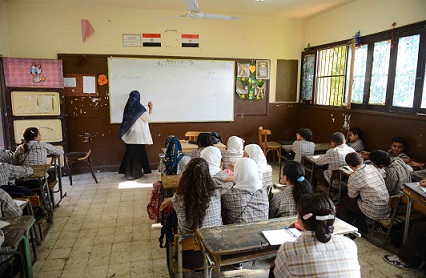The Middle East needs to increase health care, education and infrastructure investments following the coronavirus (COVID-19) pandemic, said Mahmoud Mohieldin, special envoy of the United Nations’ Secretary-General for sustainable development affairs.
Mohieldin’s comments came during a virtual panel organised by the Narrative Summit entitled “Reshaping Norms”.
The pandemic is reshaping global expenditure priorities with the data, science, and artificial intelligence sectors proving themselves as key for the economy, he said. Mohieldin noted that the ongoing coronavirus crisis also requires states to reconsider social security systems.
Egypt’s Minister of Finance Mohamed Moeit stated on Tuesday that health sector spending allocations in the state’s draft budget for fiscal year (FY) 2020/21 amounted to EGP 258bn.
This marks a 46% increase of EGP 82bn compared to the FY 2019/20 budget. Moeit added that the health, education, higher education, and scientific research sectors are priorities.
The next period will witness increasing unemployment which will continue for an extended amount of time. Moeit said it is therefore necessary to deal with the consequences of the recession in the labour market, with a need to secure access to basic income for people. In addition, the state needs to review its budgets and spending priorities in the coming period.
According to the International Labour Organisation, 195 million jobs will be lost during the global recession on the back of the ongoing coronavirus pandemic. The ILO figure is10 times that which occurred following the 2008 global financial crisis, as the current crisis in more difficult, Moeit said.
He emphasised the small and medium-sized enterprise (SME) sector’s importance, representing about 90% of the total projects in Egypt, roughly the same percentage as found in Organisation for Economic Co-operation and Development countries.
SMEs also represent a large percentage of the labour market, employing between 45% and 75% of the workforce in some projects. In the current circumstances, 75% of these projects were subject to severe pressure due to the pandemic and the recession of the economy. A further 5% found an increase in demand for their services, with the remaining 20% unaffected, Moeit elaborated.
Moeit also said that, although SMEs have many advantages in Egypt, including flexibility and labour intensity, opinion polls have outlined some barriers that hinder their work. This includes lack of training and their readiness for new technologies, in addition to lack of research, development activities, and financial services.
Egypt has launched many important initiatives in SMEs financing, both through the banking and non-banking sectors, Moeit said, with the country needing more initiatives to support this key sector.




